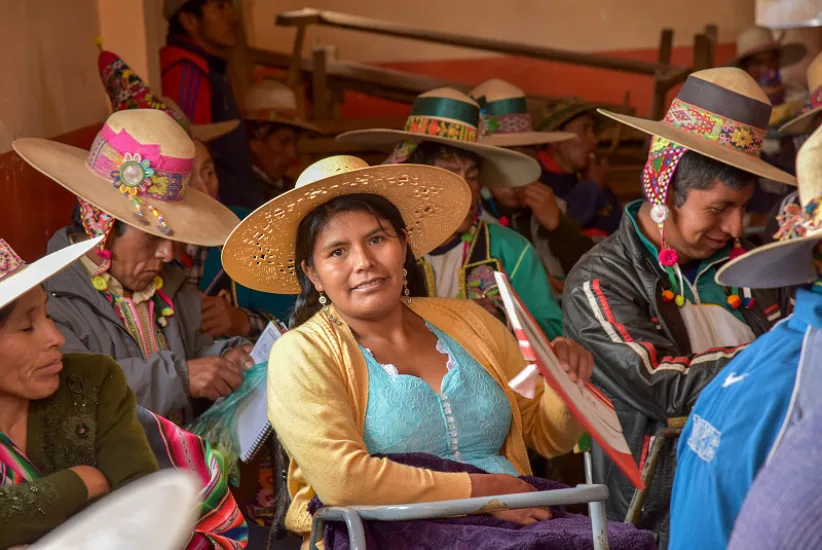Bolivia

Bolivia is a country of great inequality and discrimination against its Indigenous peoples, who constitute the majority of the population. In the early 2000’s, the popular movement formed by indigenous peasants, including NPA’s partners, mobilised demanding greater democracy, national control of natural resources, land rights and a more inclusive state.
In 2006, they contributed to the election of the country’s first Indigenous president, Evo Morales, head of MAS (Movement Towards Socialism). A new Constitution that laid the foundation for broader social participation, confirmed national control of natural resources, Indigenous peoples’ and Mother Nature’s rights, and declared Bolivia a plurinational state, was adopted by referendum in January 2009. The country implemented a number of reforms that reduced inequality, increased production and economic growth, and strengthened democratic participation. This is referred to as Bolivia’s change process.
Since 2016, tensions within MAS and the Unity Pact have increased. In 2019, when Morales defied the results of the 2016 referendum, ran for president for the third time and won, the extreme right staged a coup d'état. Morales went into exile, and when MAS won the 2020 election, Luis Arce was their presidential candidate and Morales returned as leader of MAS. Since, there has been a power struggle between Morales and Arce for control over MAS and the presidential election. Unfortunately, this conflict is also impacting the popular movement.
Despite progress made, Bolivia remains highly unequal. The wealthy landowner elite controls substantial portions of fertile land and natural resources, evades taxes, and burns massive forests in the Amazon to expand livestock farming and transgenic crops.
Programme
Our main partners in Bolivia are the regional branches of national Indigenous peasants’ movement and the Indigenous peasant women’s movement in Cochabamba and Santa Cruz. They are part of the Unity Pact, composed of the main indigenous peasant organizations, and main social force in Bolivia’s change process. NPA supports the organisations in strengthening their organisational structures, including political training and enhancing internal gender equality, communication and media work, and in developing strategies and political agenda, including access to land, credits, and the market.
The Bolivian media are dominated by a small urban elite, and the development of independent information streams is considered important by the organisations. Therefore, NPA supports partners’ efforts to develop the organisations’ own media outlets, particularly community radios in both Indigenous languages and Spanish, with developing programmes and hosts, technical upgrading, and cooperation between radio stations and organisations.

